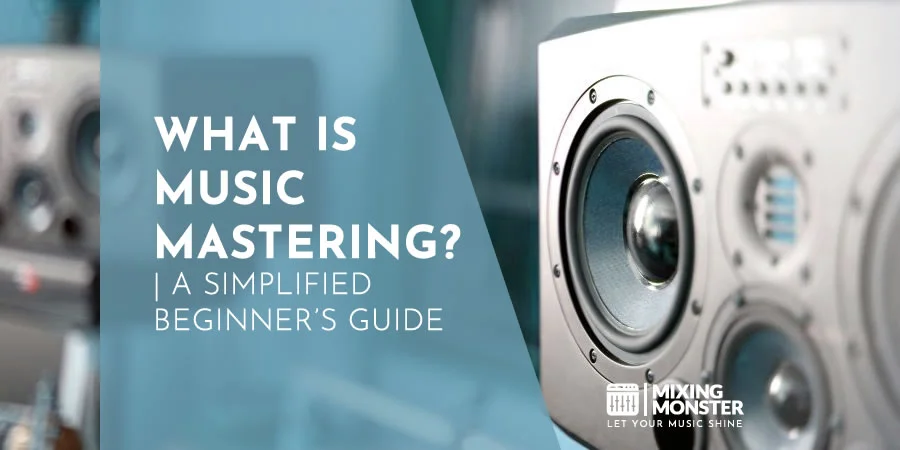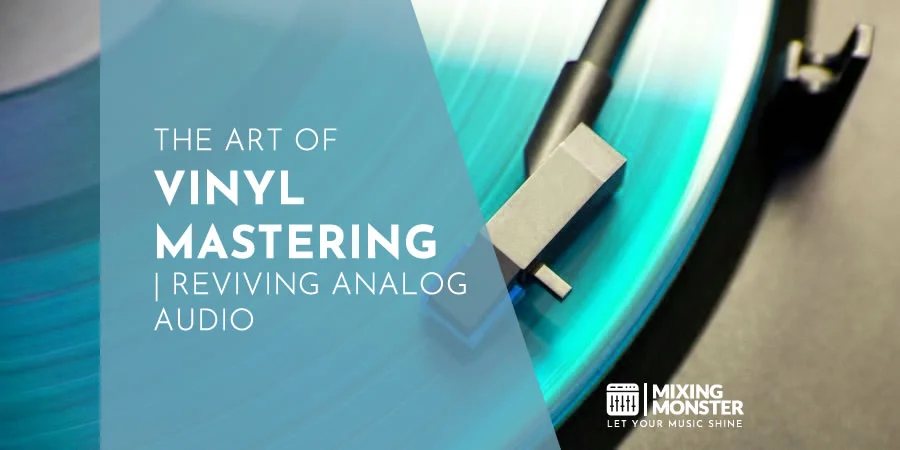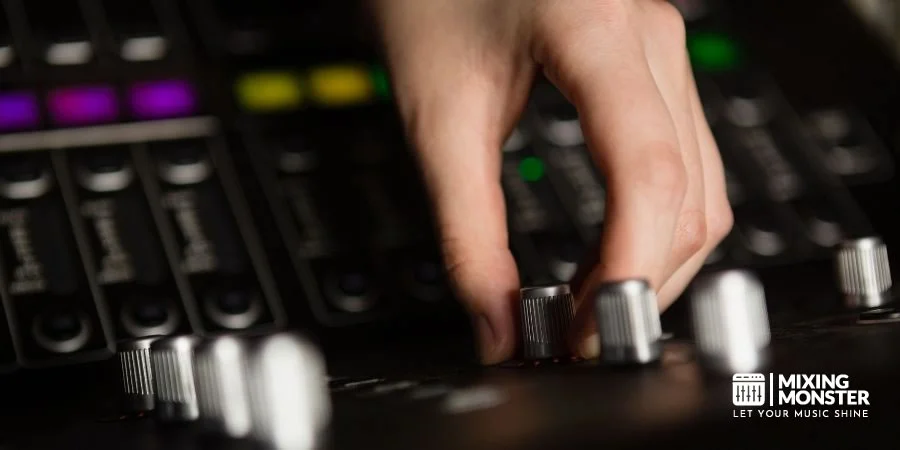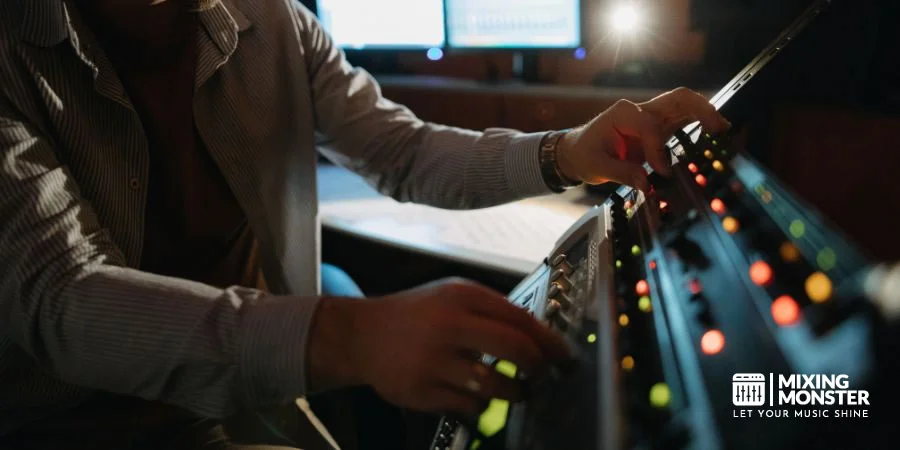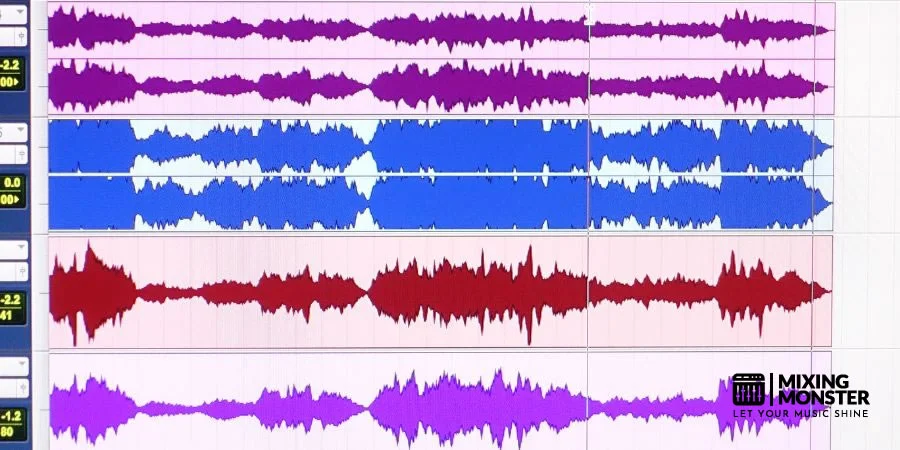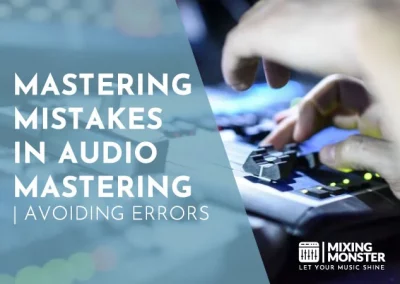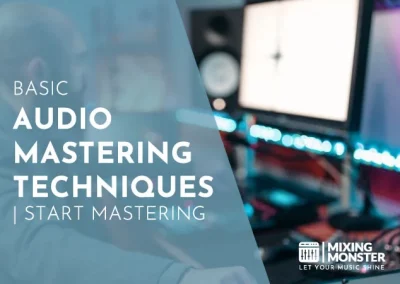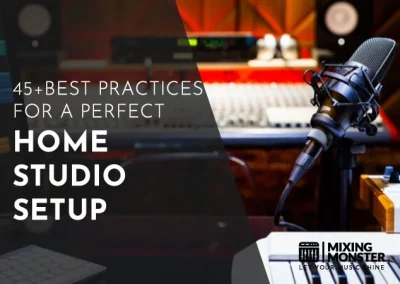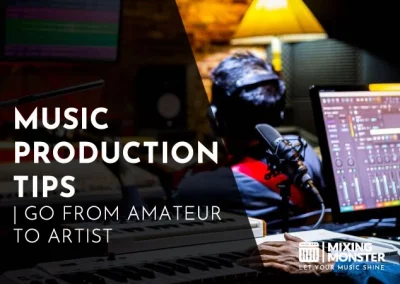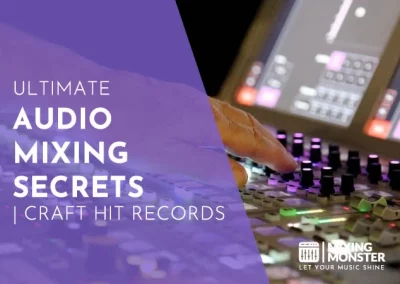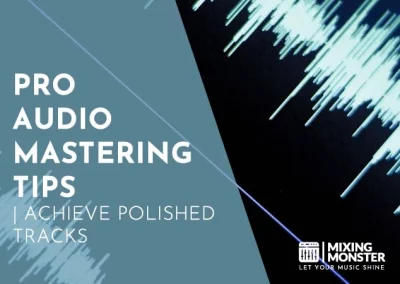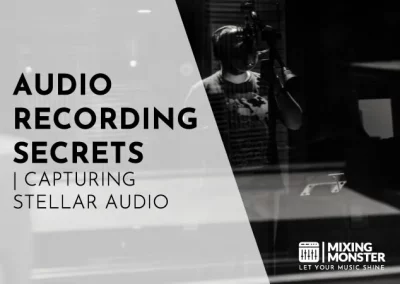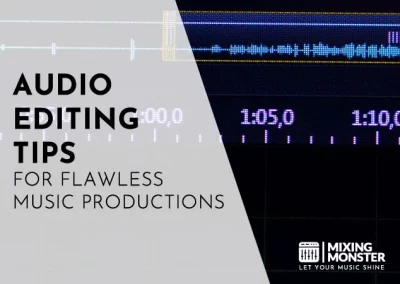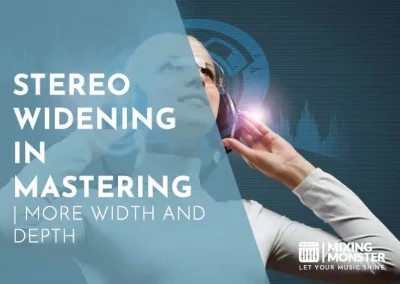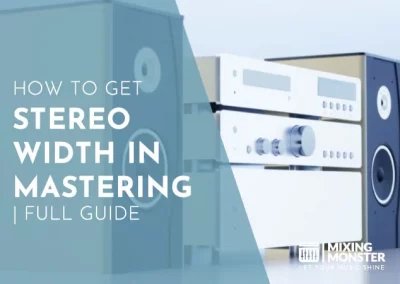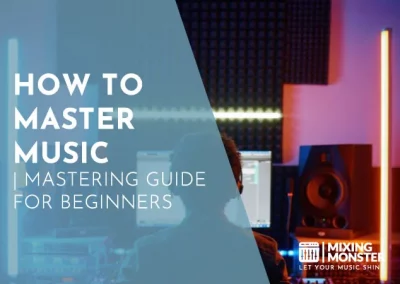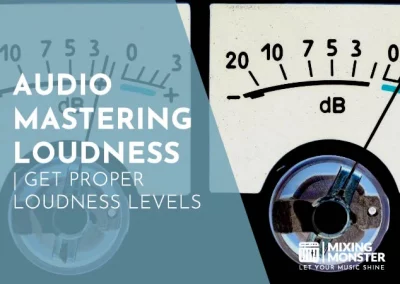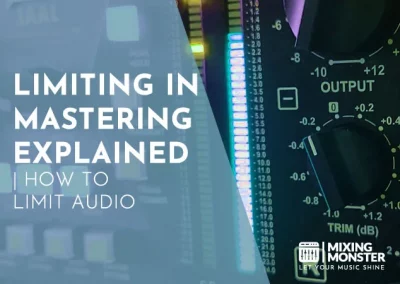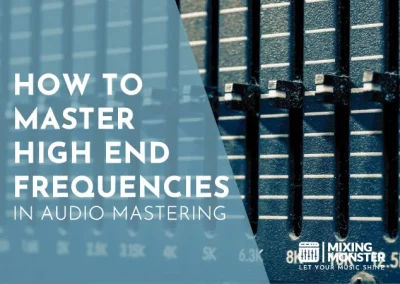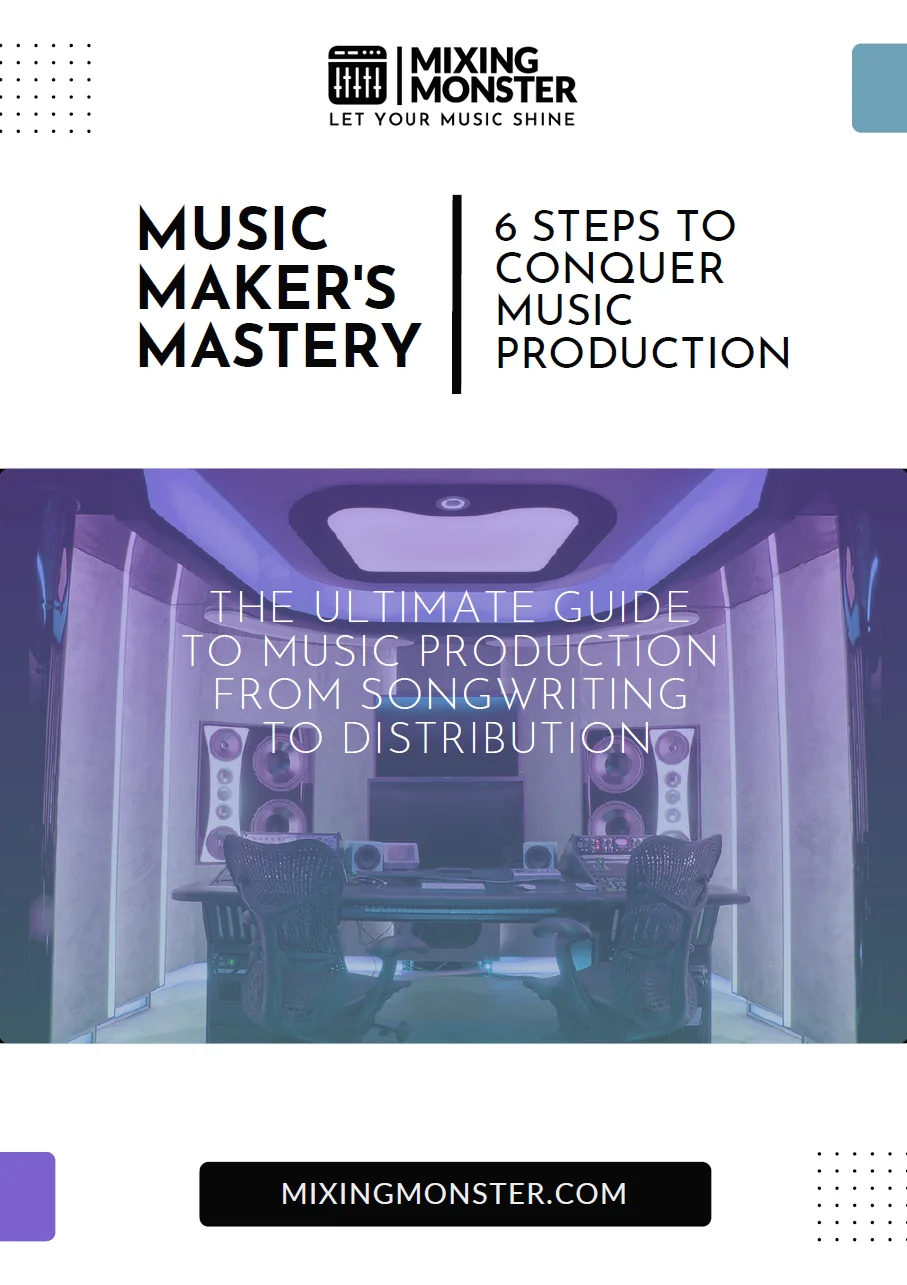Affiliate Disclaimer: We may earn a commission if you purchase through our links
Ever wondered ‘what is music mastering’ and how it shapes the soundtracks of our lives? Welcome to our simplified beginner’s guide, where we decode this vital yet often mystifying step in the music production process. Join us on this intriguing journey, and you’ll soon understand music mastering’s essential role.
Music mastering is the final, critical stage in music production, enhancing the audio quality and ensuring consistency across all playback devices. It involves subtle audio adjustments and preparation for music distribution.
Do you want to unlock the secret behind your favorite tracks’ polished sound? Dive in with us to unravel the intriguing world of music mastering and discover how it shapes the music we listen to daily.
Table Of Contents
1. Introduction To Music Mastering
2. The History Of Music Mastering
3. The Music Mastering Process
4. Tools Used In Music Mastering
5. The Importance Of Music Mastering
6. How To Start Music Mastering
7. Online Mastering Service
8. Wrapping It Up: The Magic Of Music Mastering
9. FAQ

1. Introduction To Music Mastering
From the outside looking in, mastering music might seem mystical. It’s the final and, to many, the most critical step in the music production process, but what exactly does it involve? Well, we’re about to shed some light on the matter!
Understanding The Basics Of Music Mastering
So, what is this elusive stage of music production? Imagine you’ve spent countless hours working on a song, crafting every note, and getting the mix just right.
But there’s still something missing; it lacks that professional touch, the kind of polish that makes a track shine on any sound system. That’s where music mastering comes into play!
Music mastering is the final, essential step in the music production process that ensures all the elements of your mix sound harmonious and balanced. It’s like the cherry on top of a cake, providing that final touch to make your music sound the best it can.
The Purpose Of Music Mastering
The primary goal of music mastering is to establish a sonic consistency across your entire album or playlist.
Think about it: you want your listeners to have a smooth experience as they navigate through your music, right? So, regardless of the playback system (be it headphones, studio monitors, car speakers, or a club sound system), the listener should enjoy a balanced, cohesive sound.
This is the magic that music mastering brings to the table!
2. The History Of Music Mastering
Let’s travel back in time to understand the evolution of this fascinating process.
Music Mastering In The Analog Era
Music mastering was a purely technical job in the days of vinyl records. It was about transferring the final mix from tape to the master disc (from which all the vinyl records would be made).
Mastering engineers had to ensure the music would not cause the vinyl record’s needle to skip, which was challenging.
But it wasn’t just about preventing needle skips. Music mastering engineers also had to ensure the music sounded good on the medium it was being transferred to.
In the analog era, this meant dealing with the limitations of vinyl records and cassette tapes.
Do you want to learn more about the art of vinyl mastering? Here´s a comprehensive article for you:
The Transition To Digital Mastering
With the advent of digital technology in the 1980s, the music mastering process began to change dramatically.
Now, mastering engineers have a whole new set of tools. These tools allowed them to make more precise adjustments to the audio, improving the overall sound quality.
Digital mastering brought about new opportunities, but it also brought new challenges. The ability to manipulate the audio more precisely also increased the risk of over-processing.
However, despite these potential pitfalls, digital mastering has become the standard in the music industry. And as technology advances, the future of music mastering looks bright indeed!
3. The Music Mastering Process
Music mastering may seem like a single task, but it’s a series of well-calibrated steps designed to bring out the best in your music. Let’s dive into the finer details of these stages.
Initial Listening And Analysis
Before diving headfirst into mastering, the engineer listens to the track several times.
The purpose? To understand the music’s sonic character, note any potential issues, and develop a strategy for mastering. Think of it as laying the groundwork for the following steps.
Equalization
Equalization (EQ) is one of the most crucial parts of music mastering. With EQ, the engineer adjusts the balance of frequencies to enhance the overall sound.
For instance, the engineer might reduce the lower frequencies if the bass is slightly overpowering. More advanced EQ techniques could involve mid-side processing or dynamic EQ adjustments.
The goal isn’t to overhaul the mix but to subtly improve it.
Compression And Limiting
After EQ usually comes compression and, finally, limiting.
Compression helps control the mix’s dynamic range (the difference between the loudest and quietest parts). Too much dynamic range can be jarring for listeners, so compression keeps the loudness in check.
On the other hand, limiting is used to raise the overall volume of the track without causing distortion. It’s like a safety net that prevents any part of the song from getting uncomfortably loud.
Stereo Enhancement
This step involves adjusting the stereo image – the sense of width and space in the music. Some songs might benefit from a wider stereo image, while others might need a more central focus.
It’s all about finding the perfect stereo balance to suit the character of the music.
Finalizing The Master
The final stage of the music mastering process involves creating the master file. The engineer will ensure the music is appropriately formatted for its final destination, whether vinyl, CD, or digital streaming platforms.
This includes setting the track markers for CD production, ensuring proper spacing between songs, and encoding the necessary metadata.
Also, the engineer will ensure that the track’s overall level aligns with industry standards. The aim is to ensure that the track doesn’t sound too quiet or loud when played alongside other professionally mastered tracks.
And voila! That’s music mastering in a nutshell.
But mastering isn’t just about these steps – it’s a delicate balance between art and science, requiring a keen ear, a deep understanding of music, and top-notch technical skills.
The following section explores the tools that help mastering engineers bring their magic to life. So, if you’ve ever wondered about the machinery behind those sweet sounds, stick around!
4. Tools Used In Music Mastering
Music mastering is a blend of art and technology, with the mastering engineer using various tools to weave magic into a track. Let’s unravel the tech part and explore the equipment in this final yet crucial music production stage.
Common Hardware Units
In the traditional mastering setup, you’d find an array of hardware units such as equalizers, compressors, and limiters. Each of these serves a distinct purpose:
- Equalizers are used for fine-tuning the balance of frequencies.
- Compressors help control the dynamic range of the track.
- Limiters prevent distortion by keeping a check on the maximum volume.
Even in this digital age, many mastering engineers still prefer the warmth and character of these analog tools. However, the digital revolution has also changed the gear used for mastering.
Software And Plugins
The rise of digital technology has opened up new frontiers in music mastering. Today, many software and plugins are available that replicate traditional hardware units’ functions and offer even more flexibility.
Digital tools have made music mastering more accessible than ever. They allow engineers to work with precision and tweak even the most minor details, which can significantly affect the final output.
From spectral analyzers and digital equalizers to multi-band compressors and spatial enhancement plugins – the digital realm of music mastering is teeming with possibilities.
Understanding The Mastering Suite
The mastering suite is the heart of the mastering process – where all the magic happens.
The room’s acoustics are designed to provide an accurate listening environment, free of audio distortion or color. A typical mastering suite includes a sound-treated room and a high-quality monitoring system.
In addition, the mastering suite features a workstation equipped with both hardware units and software tools. This combination allows the mastering engineer to choose the right tool for the job and craft a master that shines on any playback system.
As we’ve seen, the tools of music mastering have evolved, but the essence remains the same. It’s about making the music sound best, regardless of the playback device.
Up next, we delve into the role and importance of mastering music in modern music production. So, keep reading to discover why mastering truly is the unsung hero of music production!

5. The Importance Of Music Mastering
As you delve deeper into music mastering, you might wonder why this step is so important. Is it that big of a deal? Well, in a nutshell, yes.
Let’s uncover why mastering holds such a vital role in the music production process.
The Role Of Music Mastering In Modern Music Production
As we’ve already established, music mastering is the final step in music production. Here, the audio track receives its final polish and adjustments to shine across all playback devices.
But why does this matter in the grand scheme of music production?
For starters, mastering ensures a consistent listening experience for your audience. It ensures that your tracks sound harmonious and balanced, whether played on a top-notch sound system or earbuds.
In essence, mastering makes your music ‘translation ready’ for all types of speakers and environments.
Furthermore, music mastering lends a professional touch to your tracks. It provides the final layer of quality control, ensuring no frequency imbalances, excessive dynamic ranges, or other sound issues that could detract from the listener’s experience.
The Influence Of Streaming Platforms
The importance of music mastering has been further amplified in the age of digital streaming platforms.
Platforms like Spotify, Apple Music, and Tidal have specific loudness standards for the tracks they host.
Mastering ensures that your music complies with these standards and sounds its best, no matter the platform it’s played on.
Moreover, as listeners increasingly consume music through playlists, the sonic consistency provided by mastering becomes even more crucial. With mastering, your track can stand shoulder to shoulder with others on the playlist, ensuring a seamless listening experience.
In conclusion, mastering is not just a final touch; it’s a necessary process that ensures your music is presented in the best possible light. It enhances the sonic quality of your music, providing it competes on a level playing field in the diverse and dynamic realm of music streaming platforms.
On a more emotional level, mastering is like the final coat of paint on a masterpiece – it enhances the artwork while protecting it, allowing the world to appreciate its beauty in all its glory. In this sense, mastering is not just a technical process but a crucial stage in the creative journey of a song.
In the next section, we’ll look at how you can start your journey into the fascinating world of mastering music.
Whether you’re an aspiring engineer, a music producer looking to expand your skills or just a music enthusiast who wants to know more about this fascinating process, there’s something for everyone.
6. How To Start Music Mastering
Bitten by the music mastering bug and eager to start your journey? That’s great! As daunting as it might seem, remember that every mastering engineer started somewhere.
Let’s explore some initial skills and steps that can kickstart your mastering journey.
Essential Skills In Music Mastering
Mastering is a combination of technical knowledge and artistic judgment. Here are some essential skills and knowledge areas to focus on:
- Critical Listening:
The ability to discern minute details in a mix is crucial. Practice listening to music analytically, focusing on balance, dynamics, and frequency distribution. - Technical Knowledge:
Familiarize yourself with audio theory, digital audio, and the workings of mastering tools such as equalizers, compressors, and limiters. - Audio Restoration:
Learn how to identify and fix problems like clicks, pops, or unwanted noise. - Sequencing And Spacing:
Mastering also involves deciding the order and spacing of tracks in an album for the best listening experience. - File Formatting And Metadata:
Knowledge about different audio formats, sample rates, bit depths, and how to embed metadata into a track is also essential.
Remember, continuous learning and practice is the key to becoming an excellent mastering engineer. Make sure to watch out for our future courses on audio mastering!
7. Online Mastering Service
If you need help mastering your music projects, consider using our online mastering service, which caters to musicians of all levels.
Our experienced audio engineers and advanced technology can help bring out the best in your mixes, providing the best professional touch to your work.
While it’s essential to hone your mastering skills, don’t hesitate to use our services when you need assistance achieving the perfect sound for your projects:
8. Wrapping It Up: The Magic Of Music Mastering
In conclusion, music mastering is the final and pivotal step in music production that can truly make a track shine.
As we’ve traversed through the intricacies of mastering, we’ve seen its evolution from the analog era to the digital age and understood the tools of the trade that make it possible.
We’ve discovered its significance in the modern music industry, particularly in a world shaped by digital streaming platforms.
Finally, we’ve laid out a pathway for those intrigued to start your journey into the fascinating world of mastering.
Like any skill, it demands practice, learning, and a keen love for music. Whether you’re an aspiring music producer, a musician, or a music enthusiast, we hope this guide has enriched your understanding of this essential yet often overlooked process.
Now, as you listen to your favorite songs, you’ll know a whole world of work went into making them sound just right.
Happy mastering!
9. FAQ
- What Is The Difference Between Mixing And Mastering?
Mixing balances individual elements (vocals, guitars, drums, etc.) in a song to create a well-blended ‘mix.’ On the other hand, mastering is the final step after mixing, where the track is polished and prepared for distribution, ensuring it sounds optimal on all playback systems. - Can I Master My Own Music?
Yes, you can. However, it requires a good understanding of audio engineering principles and mastering techniques. It’s also important to remember that a fresh set of ears can offer a different perspective on the audio, which is why many prefer professional mastering engineers. - How Much Does It Cost To Get A Song Mastered?
The cost of mastering can vary widely based on the engineer’s expertise, the project’s complexity, and other factors. As a general range, mastering can cost anywhere from $50 to several hundred dollars per track. - How Long Does It Take To Master A Track?
The time required can also vary widely. A seasoned mastering engineer might spend between one to three hours on a single track, but this can change based on the mix’s quality and the project’s specific requirements. - Do I Need High-End Gear To Start Mastering?
While high-quality gear can undoubtedly be beneficial, it’s optional when starting. A good understanding of mastering principles and techniques, a decent pair of headphones or monitors, an audio interface, and some quality software can get you started.

